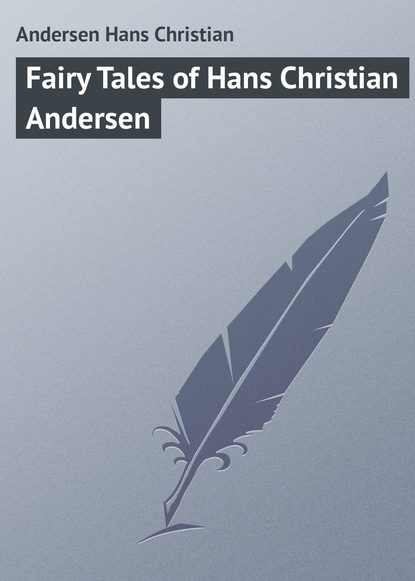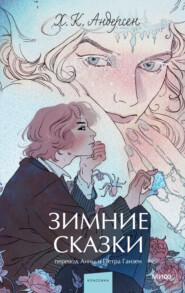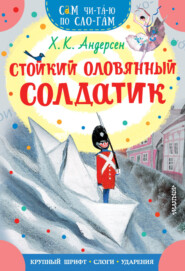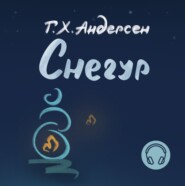По всем вопросам обращайтесь на: info@litportal.ru
(©) 2003-2024.
✖
Fairy Tales of Hans Christian Andersen
Настройки чтения
Размер шрифта
Высота строк
Поля
A hard winter followed this summer. Snow-storms swept over land and sea, and there was difficulty in getting from one place to another. How unequally things are distributed in this world! Here there was bitter cold and snow-storms, while in Spain there was burning sunshine and oppressive heat. Yet, when a clear frosty day came, and Jurgen saw the swans flying in numbers from the sea towards the land, across to Norre-Vosborg, it seemed to him that people could breathe more freely here; the summer also in this part of the world was splendid. In imagination he saw the heath blossom and become purple with rich juicy berries, and the elder-bushes and lime-trees at Norre Vosborg in flower. He made up his mind to go there again.
Spring came, and the fishing began. Jurgen was now an active helper in this, for he had grown during the last year, and was quick at work. He was full of life, and knew how to swim, to tread water, and to turn over and tumble in the strong tide. They often warned him to beware of the sharks, which seize the best swimmer, draw him down, and devour him; but such was not to be Jurgen's fate.
At a neighbour's house in the dunes there was a boy named Martin, with whom Jurgen was on very friendly terms, and they both took service in the same ship to Norway, and also went together to Holland. They never had a quarrel, but a person can be easily excited to quarrel when he is naturally hot tempered, for he often shows it in many ways; and this is just what Jurgen did one day when they fell out about the merest trifle. They were sitting behind the cabin door, eating from a delft plate, which they had placed between them. Jurgen held his pocket-knife in his hand and raised it towards Martin, and at the same time became ashy pale, and his eyes had an ugly look. Martin only said, "Ah! ah! you are one of that sort, are you? Fond of using the knife!"
The words were scarcely spoken, when Jurgen's hand sank down. He did not answer a syllable, but went on eating, and afterwards returned to his work. When they were resting again he walked up to Martin and said:
"Hit me in the face! I deserve it. But sometimes I feel as if I had a pot in me that boils over."
"There, let the thing rest," replied Martin.
And after that they were almost better friends than ever; when afterwards they returned to the dunes and began telling their adventures, this was told among the rest. Martin said that Jurgen was certainly passionate, but a good fellow after all.
They were both young and healthy, well-grown and strong; but Jurgen was the cleverer of the two.
In Norway the peasants go into the mountains and take the cattle there to find pasture. On the west coast of Jutland huts have been erected among the sand-hills; they are built of pieces of wreck, and thatched with turf and heather; there are sleeping places round the walls, and here the fishermen live and sleep during the early spring. Every fisherman has a female helper, or manager as she is called, who baits his hooks, prepares warm beer for him when he comes ashore, and gets the dinner cooked and ready for him by the time he comes back to the hut tired and hungry. Besides this the managers bring up the fish from the boats, cut them open, prepare them, and have generally a great deal to do.
Jurgen, his father, and several other fishermen and their managers inhabited the same hut; Martin lived in the next one.
One of the girls, whose name was Else, had known Jurgen from childhood; they were glad to see each other, and were of the same opinion on many points, but in appearance they were entirely opposite; for he was dark, and she was pale, and fair, and had flaxen hair, and eyes as blue as the sea in sunshine.
As they were walking together one day, Jurgen held her hand very firmly in his, and she said to him:
"Jurgen, I have something I want to say to you; let me be your manager, for you are like a brother to me; but Martin, whose housekeeper I am – he is my lover – but you need not tell this to the others."
It seemed to Jurgen as if the loose sand was giving way under his feet. He did not speak a word, but nodded his head, and that meant "yes." It was all that was necessary; but he suddenly felt in his heart that he hated Martin, and the more he thought the more he felt convinced that Martin had stolen away from him the only being he ever loved, and that this was Else: he had never thought of Else in this way before, but now it all became plain to him.
When the sea is rather rough, and the fishermen are coming home in their great boats, it is wonderful to see how they cross the reefs. One of them stands upright in the bow of the boat, and the others watch him sitting with the oars in their hands. Outside the reef it looks as if the boat was not approaching land but going back to sea; then the man who is standing up gives them the signal that the great wave is coming which is to float them across the reef. The boat is lifted high into the air, so that the keel is seen from the shore; the next moment nothing can be seen, mast, keel, and people are all hidden – it seems as though the sea had devoured them; but in a few moments they emerge like a great sea animal climbing up the waves, and the oars move as if the creature had legs. The second and third reef are passed in the same manner; then the fishermen jump into the water and push the boat towards the shore – every wave helps them – and at length they have it drawn up, beyond the reach of the breakers.
A wrong order given in front of the reef – the slightest hesitation – and the boat would be lost.
"Then it would be all over with me and Martin too!"
This thought passed through Jurgen's mind one day while they were out at sea, where his foster-father had been taken suddenly ill. The fever had seized him. They were only a few oars' strokes from the reef, and Jurgen sprang from his seat and stood up in the bow.
"Father-let me come!" he said, and he glanced at Martin and across the waves; every oar bent with the exertions of the rowers as the great wave came towards them, and he saw his father's pale face, and dared not obey the evil impulse that had shot through his brain. The boat came safely across the reef to land; but the evil thought remained in his heart, and roused up every little fibre of bitterness which he remembered between himself and Martin since they had known each other. But he could not weave the fibres together, nor did he endeavour to do so. He felt that Martin had robbed him, and this was enough to make him hate his former friend. Several of the fishermen saw this, but Martin did not – he remained as obliging and talkative as ever, in fact he talked rather too much.
Jurgen's foster-father took to his bed, and it became his death-bed, for he died a week afterwards; and now Jurgen was heir to the little house behind the sand-hills. It was small, certainly, but still it was something, and Martin had nothing of the kind.
"You will not go to sea again, Jurgen, I suppose," observed one of the old fishermen. "You will always stay with us now."
But this was not Jurgen's intention; he wanted to see something of the world. The eel-breeder of Fjaltring had an uncle at Old Skjagen, who was a fisherman, but also a prosperous merchant with ships upon the sea; he was said to be a good old man, and it would not be a bad thing to enter his service. Old Skjagen lies in the extreme north of Jutland, as far away from the Hunsby dunes as one can travel in that country; and this is just what pleased Jurgen, for he did not want to remain till the wedding of Martin and Else, which would take place in a week or two.
The old fisherman said it was foolish to go away, for now that Jurgen had a home Else would very likely be inclined to take him instead of Martin.
Jurgen gave such a vague answer that it was not easy to make out what he meant – the old man brought Else to him, and she said:
"You have a home now; you ought to think of that."
And Jurgen thought of many things.
The sea has heavy waves, but there are heavier waves in the human heart. Many thoughts, strong and weak, rushed through Jurgen's brain, and he said to Else:
"If Martin had a house like mine, which of us would you rather have?"
"But Martin has no house and cannot get one."
"Suppose he had one?"
"Well, then I would certainly take Martin, for that is what my heart tells me; but one cannot live upon love."
Jurgen turned these things over in his mind all night. Something was working within him, he hardly knew what it was, but it was even stronger than his love for Else; and so he went to Martin's, and what he said and did there was well considered. He let the house to Martin on most liberal terms, saying that he wished to go to sea again, because he loved it. And Else kissed him when she heard of it, for she loved Martin best.
Jurgen proposed to start early in the morning, and on the evening before his departure, when it was already getting rather late, he felt a wish to visit Martin once more. He started, and among the dunes met the old fisherman, who was angry at his leaving the place. The old man made jokes about Martin, and declared there must be some magic about that fellow, of whom the girls were so fond.
Jurgen did not pay any attention to his remarks, but said good-bye to the old man and went on towards the house where Martin dwelt. He heard loud talking inside; Martin was not alone, and this made Jurgen waver in his determination, for he did not wish to see Else again. On second thoughts, he decided that it was better not to hear any more thanks from Martin, and so he turned back.
On the following morning, before the sun rose, he fastened his knapsack on his back, took his wooden provision box in his hand, and went away among the sand-hills towards the coast path. This way was more pleasant than the heavy sand road, and besides it was shorter; and he intended to go first to Fjaltring, near Bovbjerg, where the eel-breeder lived, to whom he had promised a visit.
The sea lay before him, clear and blue, and the mussel shells and pebbles, the playthings of his childhood, crunched over his feet. While he thus walked on his nose suddenly began to bleed; it was a trifling occurrence, but trifles sometimes are of great importance. A few large drops of blood fell upon one of his sleeves. He wiped them off and stopped the bleeding, and it seemed to him as if this had cleared and lightened his brain. The sea-cale bloomed here and there in the sand as he passed. He broke off a spray and stuck it in his hat; he determined to be merry and light-hearted, for he was going out into the wide world – "a little way out, beyond the bay," as the young eels had said. "Beware of bad people who will catch you, and skin you, and put you in the frying-pan!" he repeated in his mind, and smiled, for he thought he should find his way through the world – good courage is a strong weapon!
The sun was high in the heavens when he approached the narrow entrance to Nissum Bay. He looked back and saw a couple of horsemen galloping a long distance behind him, and there were other people with them. But this did not concern him.
The ferry-boat was on the opposite side of the bay. Jurgen called to the ferry-man, and the latter came over with his boat. Jurgen stepped in; but before he had got half-way across, the men whom he had seen riding so hastily, came up, hailed the ferry-man, and commanded him to return in the name of the law. Jurgen did not understand the reason of this, but he thought it would be best to turn back, and therefore he himself took an oar and returned. As soon as the boat touched the shore, the men sprang on board, and before he was aware of it, they had bound his hands with a rope.
"This wicked deed will cost you your life," they said. "It is a good thing we have caught you."
He was accused of nothing less than murder. Martin had been found dead, with his throat cut. One of the fishermen, late on the previous evening, had met Jurgen going towards Martin's house; this was not the first time Jurgen had raised his knife against Martin, so they felt sure that he was the murderer. The prison was in a town at a great distance, and the wind was contrary for going there by sea; but it would not take half an hour to get across the bay, and another quarter of an hour would bring them to Norre-Vosborg, the great castle with ramparts and moat. One of Jurgen's captors was a fisherman, a brother of the keeper of the castle, and he said it might be managed that Jurgen should be placed for the present in the dungeon at Vosborg, where Long Martha the gipsy had been shut up till her execution. They paid no attention to Jurgen's defence; the few drops of blood on his shirt-sleeve bore heavy witness against him. But he was conscious of his innocence, and as there was no chance of clearing himself at present he submitted to his fate.
The party landed just at the place where Sir Bugge's castle had stood, and where Jurgen had walked with his foster-parents after the burial feast, during the four happiest days of his childhood. He was led by the well-known path, over the meadow to Vosborg; once more the elders were in bloom and the lofty lime-trees gave forth sweet fragrance, and it seemed as if it were but yesterday that he had last seen the spot. In each of the two wings of the castle there was a staircase which led to a place below the entrance, from whence there is access to a low, vaulted cellar. In this dungeon Long Martha had been imprisoned, and from here she was led away to the scaffold. She had eaten the hearts of five children, and had imagined that if she could obtain two more she would be able to fly and make herself invisible. In the middle of the roof of the cellar there was a little narrow air-hole, but no window. The flowering lime trees could not breathe refreshing fragrance into that abode, where everything was dark and mouldy. There was only a rough bench in the cell; but a good conscience is a soft pillow, and therefore Jurgen could sleep well.
The thick oaken door was locked, and secured on the outside by an iron bar; but the goblin of superstition can creep through a keyhole into a baron's castle just as easily as it can into a fisherman's cottage, and why should he not creep in here, where Jurgen sat thinking of Long Martha and her wicked deeds? Her last thoughts on the night before her execution had filled this place, and the magic that tradition asserted to have been practised here, in Sir Svanwedel's time, came into Jurgen's mind, and made him shudder; but a sunbeam, a refreshing thought from without, penetrated his heart even here – it was the remembrance of the flowering elder and the sweet smelling lime-trees.
He was not left there long. They took him away to the town of Ringkjobing, where he was imprisoned with equal severity.
Those times were not like ours. The common people were treated harshly; and it was just after the days when farms were converted into knights' estates, when coachmen and servants were often made magistrates, and had power to sentence a poor man, for a small offence, to lose his property and to corporeal punishment. Judges of this kind were still to be found; and in Jutland, so far from the capital, and from the enlightened, well-meaning, head of the Government, the law was still very loosely administered sometimes – the smallest grievance Jurgen could expect was that his case should be delayed.
His dwelling was cold and comfortless; and how long would he be obliged to bear all this? It seemed his fate to suffer misfortune and sorrow innocently. He now had plenty of time to reflect on the difference of fortune on earth, and to wonder why this fate had been allotted to him; yet he felt sure that all would be made clear in the next life, the existence that awaits us when this life is over. His faith had grown strong in the poor fisherman's cottage; the light which had never shone into his father's mind, in all the richness and sunshine of Spain, was sent to him to be his comfort in poverty and distress, a sign of that mercy of God which never fails.
The spring storms began to blow. The rolling and moaning of the North Sea could be heard for miles inland when the wind was blowing, and then it sounded like the rushing of a thousand waggons over a hard road with a mine underneath. Jurgen heard these sounds in his prison, and it was a relief to him. No music could have touched his heart as did these sounds of the sea – the rolling sea, the boundless sea, on which a man can be borne across the world before the wind, carrying his own house with him wherever he goes, just as the snail carries its home even into a strange country.
He listened eagerly to its deep murmur and then the thought arose – "Free! free! How happy to be free, even barefooted and in ragged clothes!" Sometimes, when such thoughts crossed his mind, the fiery nature rose within him, and he beat the wall with his clenched fists.
Weeks, months, a whole year had gone by, when Niels the thief, called also a horse-dealer, was arrested; and now better times came, and it was seen that Jurgen had been wrongly accused.
On the afternoon before Jurgen's departure from home, and before the murder, Niels the thief, had met Martin at a beer-house in the neighbourhood of Ringkjobing. A few glasses were drank, not enough to cloud the brain, but enough to loosen Martin's tongue. He began to boast and to say that he had obtained a house and intended to marry, and when Niels asked him where he was going to get the money, he slapped his pocket proudly and said:
"The money is here, where it ought to be."
Spring came, and the fishing began. Jurgen was now an active helper in this, for he had grown during the last year, and was quick at work. He was full of life, and knew how to swim, to tread water, and to turn over and tumble in the strong tide. They often warned him to beware of the sharks, which seize the best swimmer, draw him down, and devour him; but such was not to be Jurgen's fate.
At a neighbour's house in the dunes there was a boy named Martin, with whom Jurgen was on very friendly terms, and they both took service in the same ship to Norway, and also went together to Holland. They never had a quarrel, but a person can be easily excited to quarrel when he is naturally hot tempered, for he often shows it in many ways; and this is just what Jurgen did one day when they fell out about the merest trifle. They were sitting behind the cabin door, eating from a delft plate, which they had placed between them. Jurgen held his pocket-knife in his hand and raised it towards Martin, and at the same time became ashy pale, and his eyes had an ugly look. Martin only said, "Ah! ah! you are one of that sort, are you? Fond of using the knife!"
The words were scarcely spoken, when Jurgen's hand sank down. He did not answer a syllable, but went on eating, and afterwards returned to his work. When they were resting again he walked up to Martin and said:
"Hit me in the face! I deserve it. But sometimes I feel as if I had a pot in me that boils over."
"There, let the thing rest," replied Martin.
And after that they were almost better friends than ever; when afterwards they returned to the dunes and began telling their adventures, this was told among the rest. Martin said that Jurgen was certainly passionate, but a good fellow after all.
They were both young and healthy, well-grown and strong; but Jurgen was the cleverer of the two.
In Norway the peasants go into the mountains and take the cattle there to find pasture. On the west coast of Jutland huts have been erected among the sand-hills; they are built of pieces of wreck, and thatched with turf and heather; there are sleeping places round the walls, and here the fishermen live and sleep during the early spring. Every fisherman has a female helper, or manager as she is called, who baits his hooks, prepares warm beer for him when he comes ashore, and gets the dinner cooked and ready for him by the time he comes back to the hut tired and hungry. Besides this the managers bring up the fish from the boats, cut them open, prepare them, and have generally a great deal to do.
Jurgen, his father, and several other fishermen and their managers inhabited the same hut; Martin lived in the next one.
One of the girls, whose name was Else, had known Jurgen from childhood; they were glad to see each other, and were of the same opinion on many points, but in appearance they were entirely opposite; for he was dark, and she was pale, and fair, and had flaxen hair, and eyes as blue as the sea in sunshine.
As they were walking together one day, Jurgen held her hand very firmly in his, and she said to him:
"Jurgen, I have something I want to say to you; let me be your manager, for you are like a brother to me; but Martin, whose housekeeper I am – he is my lover – but you need not tell this to the others."
It seemed to Jurgen as if the loose sand was giving way under his feet. He did not speak a word, but nodded his head, and that meant "yes." It was all that was necessary; but he suddenly felt in his heart that he hated Martin, and the more he thought the more he felt convinced that Martin had stolen away from him the only being he ever loved, and that this was Else: he had never thought of Else in this way before, but now it all became plain to him.
When the sea is rather rough, and the fishermen are coming home in their great boats, it is wonderful to see how they cross the reefs. One of them stands upright in the bow of the boat, and the others watch him sitting with the oars in their hands. Outside the reef it looks as if the boat was not approaching land but going back to sea; then the man who is standing up gives them the signal that the great wave is coming which is to float them across the reef. The boat is lifted high into the air, so that the keel is seen from the shore; the next moment nothing can be seen, mast, keel, and people are all hidden – it seems as though the sea had devoured them; but in a few moments they emerge like a great sea animal climbing up the waves, and the oars move as if the creature had legs. The second and third reef are passed in the same manner; then the fishermen jump into the water and push the boat towards the shore – every wave helps them – and at length they have it drawn up, beyond the reach of the breakers.
A wrong order given in front of the reef – the slightest hesitation – and the boat would be lost.
"Then it would be all over with me and Martin too!"
This thought passed through Jurgen's mind one day while they were out at sea, where his foster-father had been taken suddenly ill. The fever had seized him. They were only a few oars' strokes from the reef, and Jurgen sprang from his seat and stood up in the bow.
"Father-let me come!" he said, and he glanced at Martin and across the waves; every oar bent with the exertions of the rowers as the great wave came towards them, and he saw his father's pale face, and dared not obey the evil impulse that had shot through his brain. The boat came safely across the reef to land; but the evil thought remained in his heart, and roused up every little fibre of bitterness which he remembered between himself and Martin since they had known each other. But he could not weave the fibres together, nor did he endeavour to do so. He felt that Martin had robbed him, and this was enough to make him hate his former friend. Several of the fishermen saw this, but Martin did not – he remained as obliging and talkative as ever, in fact he talked rather too much.
Jurgen's foster-father took to his bed, and it became his death-bed, for he died a week afterwards; and now Jurgen was heir to the little house behind the sand-hills. It was small, certainly, but still it was something, and Martin had nothing of the kind.
"You will not go to sea again, Jurgen, I suppose," observed one of the old fishermen. "You will always stay with us now."
But this was not Jurgen's intention; he wanted to see something of the world. The eel-breeder of Fjaltring had an uncle at Old Skjagen, who was a fisherman, but also a prosperous merchant with ships upon the sea; he was said to be a good old man, and it would not be a bad thing to enter his service. Old Skjagen lies in the extreme north of Jutland, as far away from the Hunsby dunes as one can travel in that country; and this is just what pleased Jurgen, for he did not want to remain till the wedding of Martin and Else, which would take place in a week or two.
The old fisherman said it was foolish to go away, for now that Jurgen had a home Else would very likely be inclined to take him instead of Martin.
Jurgen gave such a vague answer that it was not easy to make out what he meant – the old man brought Else to him, and she said:
"You have a home now; you ought to think of that."
And Jurgen thought of many things.
The sea has heavy waves, but there are heavier waves in the human heart. Many thoughts, strong and weak, rushed through Jurgen's brain, and he said to Else:
"If Martin had a house like mine, which of us would you rather have?"
"But Martin has no house and cannot get one."
"Suppose he had one?"
"Well, then I would certainly take Martin, for that is what my heart tells me; but one cannot live upon love."
Jurgen turned these things over in his mind all night. Something was working within him, he hardly knew what it was, but it was even stronger than his love for Else; and so he went to Martin's, and what he said and did there was well considered. He let the house to Martin on most liberal terms, saying that he wished to go to sea again, because he loved it. And Else kissed him when she heard of it, for she loved Martin best.
Jurgen proposed to start early in the morning, and on the evening before his departure, when it was already getting rather late, he felt a wish to visit Martin once more. He started, and among the dunes met the old fisherman, who was angry at his leaving the place. The old man made jokes about Martin, and declared there must be some magic about that fellow, of whom the girls were so fond.
Jurgen did not pay any attention to his remarks, but said good-bye to the old man and went on towards the house where Martin dwelt. He heard loud talking inside; Martin was not alone, and this made Jurgen waver in his determination, for he did not wish to see Else again. On second thoughts, he decided that it was better not to hear any more thanks from Martin, and so he turned back.
On the following morning, before the sun rose, he fastened his knapsack on his back, took his wooden provision box in his hand, and went away among the sand-hills towards the coast path. This way was more pleasant than the heavy sand road, and besides it was shorter; and he intended to go first to Fjaltring, near Bovbjerg, where the eel-breeder lived, to whom he had promised a visit.
The sea lay before him, clear and blue, and the mussel shells and pebbles, the playthings of his childhood, crunched over his feet. While he thus walked on his nose suddenly began to bleed; it was a trifling occurrence, but trifles sometimes are of great importance. A few large drops of blood fell upon one of his sleeves. He wiped them off and stopped the bleeding, and it seemed to him as if this had cleared and lightened his brain. The sea-cale bloomed here and there in the sand as he passed. He broke off a spray and stuck it in his hat; he determined to be merry and light-hearted, for he was going out into the wide world – "a little way out, beyond the bay," as the young eels had said. "Beware of bad people who will catch you, and skin you, and put you in the frying-pan!" he repeated in his mind, and smiled, for he thought he should find his way through the world – good courage is a strong weapon!
The sun was high in the heavens when he approached the narrow entrance to Nissum Bay. He looked back and saw a couple of horsemen galloping a long distance behind him, and there were other people with them. But this did not concern him.
The ferry-boat was on the opposite side of the bay. Jurgen called to the ferry-man, and the latter came over with his boat. Jurgen stepped in; but before he had got half-way across, the men whom he had seen riding so hastily, came up, hailed the ferry-man, and commanded him to return in the name of the law. Jurgen did not understand the reason of this, but he thought it would be best to turn back, and therefore he himself took an oar and returned. As soon as the boat touched the shore, the men sprang on board, and before he was aware of it, they had bound his hands with a rope.
"This wicked deed will cost you your life," they said. "It is a good thing we have caught you."
He was accused of nothing less than murder. Martin had been found dead, with his throat cut. One of the fishermen, late on the previous evening, had met Jurgen going towards Martin's house; this was not the first time Jurgen had raised his knife against Martin, so they felt sure that he was the murderer. The prison was in a town at a great distance, and the wind was contrary for going there by sea; but it would not take half an hour to get across the bay, and another quarter of an hour would bring them to Norre-Vosborg, the great castle with ramparts and moat. One of Jurgen's captors was a fisherman, a brother of the keeper of the castle, and he said it might be managed that Jurgen should be placed for the present in the dungeon at Vosborg, where Long Martha the gipsy had been shut up till her execution. They paid no attention to Jurgen's defence; the few drops of blood on his shirt-sleeve bore heavy witness against him. But he was conscious of his innocence, and as there was no chance of clearing himself at present he submitted to his fate.
The party landed just at the place where Sir Bugge's castle had stood, and where Jurgen had walked with his foster-parents after the burial feast, during the four happiest days of his childhood. He was led by the well-known path, over the meadow to Vosborg; once more the elders were in bloom and the lofty lime-trees gave forth sweet fragrance, and it seemed as if it were but yesterday that he had last seen the spot. In each of the two wings of the castle there was a staircase which led to a place below the entrance, from whence there is access to a low, vaulted cellar. In this dungeon Long Martha had been imprisoned, and from here she was led away to the scaffold. She had eaten the hearts of five children, and had imagined that if she could obtain two more she would be able to fly and make herself invisible. In the middle of the roof of the cellar there was a little narrow air-hole, but no window. The flowering lime trees could not breathe refreshing fragrance into that abode, where everything was dark and mouldy. There was only a rough bench in the cell; but a good conscience is a soft pillow, and therefore Jurgen could sleep well.
The thick oaken door was locked, and secured on the outside by an iron bar; but the goblin of superstition can creep through a keyhole into a baron's castle just as easily as it can into a fisherman's cottage, and why should he not creep in here, where Jurgen sat thinking of Long Martha and her wicked deeds? Her last thoughts on the night before her execution had filled this place, and the magic that tradition asserted to have been practised here, in Sir Svanwedel's time, came into Jurgen's mind, and made him shudder; but a sunbeam, a refreshing thought from without, penetrated his heart even here – it was the remembrance of the flowering elder and the sweet smelling lime-trees.
He was not left there long. They took him away to the town of Ringkjobing, where he was imprisoned with equal severity.
Those times were not like ours. The common people were treated harshly; and it was just after the days when farms were converted into knights' estates, when coachmen and servants were often made magistrates, and had power to sentence a poor man, for a small offence, to lose his property and to corporeal punishment. Judges of this kind were still to be found; and in Jutland, so far from the capital, and from the enlightened, well-meaning, head of the Government, the law was still very loosely administered sometimes – the smallest grievance Jurgen could expect was that his case should be delayed.
His dwelling was cold and comfortless; and how long would he be obliged to bear all this? It seemed his fate to suffer misfortune and sorrow innocently. He now had plenty of time to reflect on the difference of fortune on earth, and to wonder why this fate had been allotted to him; yet he felt sure that all would be made clear in the next life, the existence that awaits us when this life is over. His faith had grown strong in the poor fisherman's cottage; the light which had never shone into his father's mind, in all the richness and sunshine of Spain, was sent to him to be his comfort in poverty and distress, a sign of that mercy of God which never fails.
The spring storms began to blow. The rolling and moaning of the North Sea could be heard for miles inland when the wind was blowing, and then it sounded like the rushing of a thousand waggons over a hard road with a mine underneath. Jurgen heard these sounds in his prison, and it was a relief to him. No music could have touched his heart as did these sounds of the sea – the rolling sea, the boundless sea, on which a man can be borne across the world before the wind, carrying his own house with him wherever he goes, just as the snail carries its home even into a strange country.
He listened eagerly to its deep murmur and then the thought arose – "Free! free! How happy to be free, even barefooted and in ragged clothes!" Sometimes, when such thoughts crossed his mind, the fiery nature rose within him, and he beat the wall with his clenched fists.
Weeks, months, a whole year had gone by, when Niels the thief, called also a horse-dealer, was arrested; and now better times came, and it was seen that Jurgen had been wrongly accused.
On the afternoon before Jurgen's departure from home, and before the murder, Niels the thief, had met Martin at a beer-house in the neighbourhood of Ringkjobing. A few glasses were drank, not enough to cloud the brain, but enough to loosen Martin's tongue. He began to boast and to say that he had obtained a house and intended to marry, and when Niels asked him where he was going to get the money, he slapped his pocket proudly and said:
"The money is here, where it ought to be."

















